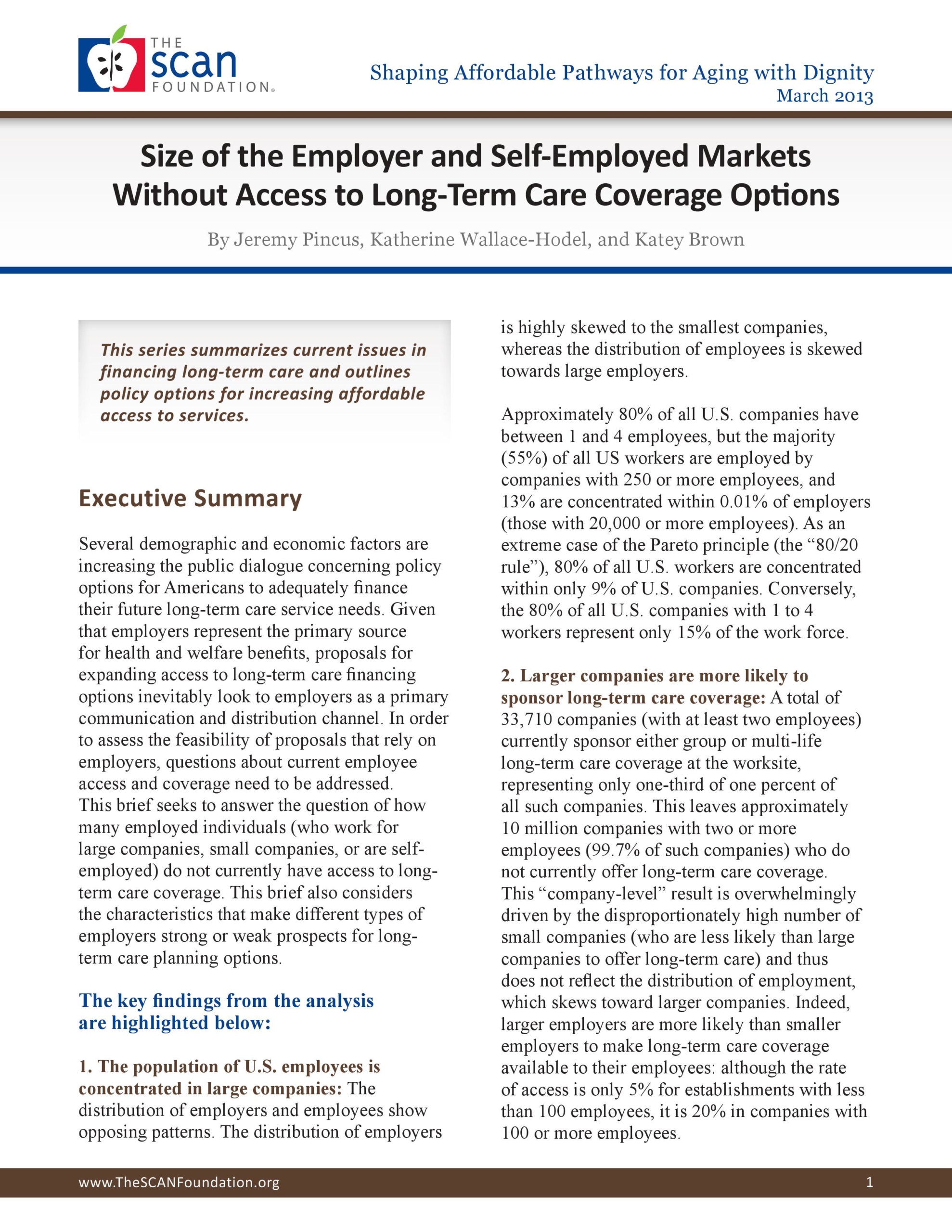Size of the Employer and Self-Employed Markets Without Access to Long-Term Care Coverage Options
summary
This brief seeks to answer the question of how many employed individuals (who work for large companies, small companies, or are self-employed) do not currently have access to long-term care coverage. This brief also considers the characteristics that make different types of employers strong or weak prospects for long-term care planning options.
Date Updated: 03/20/2013Several demographic and economic factors are increasing the public dialogue concerning policy options for Americans to adequately finance their future long-term care service needs. Given that employers represent the primary source for health and welfare benefits, proposals for expanding access to long-term care financing options inevitably look to employers as a primary communication and distribution channel. In order to assess the feasibility of proposals that rely on employers, questions about current employee access and coverage need to be addressed. This brief seeks to answer the question of how many employed individuals (who work for large companies, small companies, or are self-employed) do not currently have access to long-term care coverage. This brief also considers the characteristics that make different types of employers strong or weak prospects for long-term care planning options…
Download the publication for all visuals and complete references.
Continue Reading
This policy brief provides background on the historical development of benefit eligibility triggers in the private long-term care insurance market. Understanding how these triggers came into being can provide important information to those charged with implementing the CLASS Plan.
This policy brief provides information about how long-term care insurers implement benefit eligibility triggers in the private insurance market. The way in which companies have operationalized benefit eligibility triggers can inform the development of regulations for the CLASS Plan.
This policy brief provides information on the benefit eligibility assessment process in the private long-term care insurance industry. It focuses on how long-term care insurers use the information in the adjudication process, who is involved in the process, and how activities of daily living and cognition are assessed.


